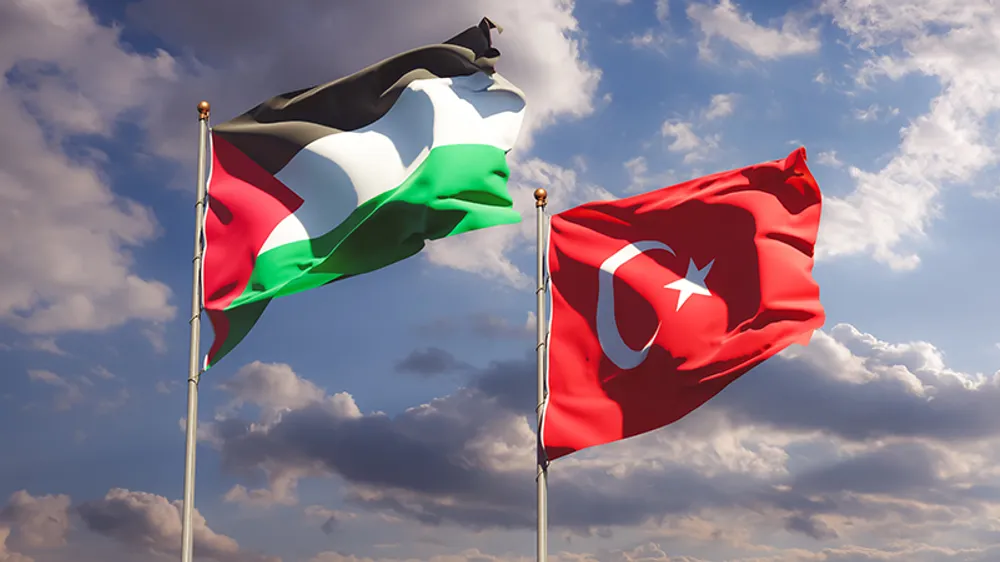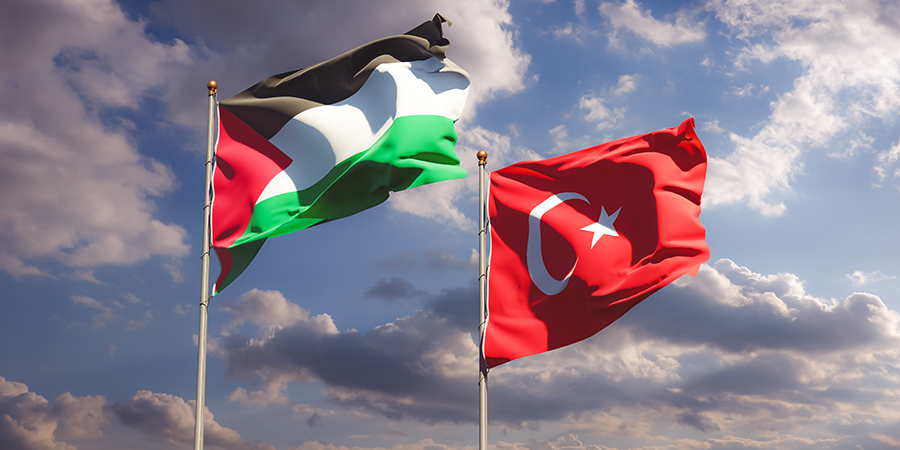
Turkish Universities Can Lead on Aiding Gaza HE
Türkiye has a rich history of supporting refugees in higher education. As the crisis in Gaza escalates, Turkish universities can play a crucial role in rebuilding Gaza's shattered academic capacity and infrastructure.
Türkiye has a long-standing experience in supporting refugee populations from war-torn zones in the Middle East to pursue their higher education (HE). By far, it is the largest Syrian refugee-hosting country worldwide, with more than 3.5 million Syrians. Over the past decade, Türkiye worked closely with international partners to improve refugee access to quality HE, and their mobility. For example, in coordinated efforts between the HE Council and the Presidency for Turks Abroad and Related Communities (YTB), and the European Union and UNHCR, Türkiye hosts the largest UNHCR’s worldwide scholarship programme, as well as working to make a continuum of educational opportunities available through offering fee exemptions, delivering free language classes to adults, and providing quality non-formal education to youth and adults to empower them with a better future, and facilitate their integration in the Turkish society. Building on the country’s substantial experiences in hosting refugees, Turkish universities could take a proactive role in responding to the crisis in the Gaza Strip, supporting the reconstruction of Gaza’s HE, and the academic community at this critical time. But what exactly could Turkish universities do, and how.
In a new policy briefing paper published by the University of Cambridge Centre for Business Research (August 2024), I put forward some strategic and actionable recommendations for world’s universities to consider for implementation, which could also be useful to various Turkish universities’ departments and actors.
Turkish universities’ responses are needed in Gaza
Israel’s ongoing war on the Gaza Strip is unprecedented that the UN International Court of Justice, in its ruling of 26th January 2024, has declared it as at least, plausibly a genocide. At the time of writing, this war has resulted in the destruction of all Gaza’s universities, completely or partially. The war is also wiping out Gaza education and knowledge system, including cultural institutions, religious sites, and Palestinian libraries and archives. The devastation has extended to universities’ academics, administrators and students, who were exposed to displacements, killings, detentions, life-changing injuries and experiences of loss, trauma and de-humanization. A UN Development Programme (UNDP) assessment (May, 2024) estimates that this war on Gaza could reduce levels of health, education and wealth in the territory to those of 1980, wiping out 44 years of development.
Within these extremely difficult circumstances, Palestinians have attempted resilience. For example, some universities were able communicate with their academic community using social media platforms; collaborated with local universities in the West Bank to deliver online teaching; and conducted viva voce examinations in tents. Of course, these efforts, remain very limited, and unsustainable under war conditions. Nonetheless, they indicate Palestinian persistence to recover the Gaza HE, for the current and new generations of Palestinians. In an open letter that was published by Al Jazeera, Gaza academics and administrators addressed the world, saying: “we call upon our colleagues in the homeland and internationally to support our steadfast attempts to defend and preserve our universities for the sake of the future of our people, and our ability to remain on our Palestinian land in Gaza. We built these universities from tents. And from tents, with the support of our friends, we will rebuild them once again”.
What could Turkish universities do?
In the 20-page policy brief, I put forward strategic and actionable recommendations, that could be helpful to support Turkish universities efforts in this direction. Overarching strategic recommendations include:
Initiating Scholarship Programs
Turkish universities could, for example, devise new ways of assessment, and admissions that could be possible under war and displacement conditions in the Gaza Strip. Turkish universities could also draw on diplomatic means to facilitate exit routes for scholarship winners, to join their studies. With these adjustments, scholarship schemes for Palestinians can reach more students, both inside and outside the Gaza Strip.
Active participation of Palestinian students and academics
Students from conflict-affected areas should not be considered one homogeneous group. The context and experiences of students and academics from the Gaza Strip might be qualitatively different from other refugee groups. Taking a one-size-fits all approach to refugees and foreign student bodies overlooks those differences. In order to achieve inclusiveness, Turkish universities should work together with their Palestinian students and academics in campus, welcoming their active participation in informing these universities’ policies and practices of inclusion.
Building sustainable collaborations and partnerships with Gaza’s universities
Israel’s ongoing war has caused grave damages to these universities’ infra-structure and resulted in a significant loss of expertise and resources. Turkish universities solidarity with Gaza’s universities, and the academic community, both those who remain in Gaza, and who are abroad, through building collaborations and partnerships is vitally needed.
Strengthening the capacity of Gaza’s universities
Turkish universities and other world’s universities should encourage Palestinian academic production, by empowering Gaza’s universities capacities in the future, creating opportunities for joint research and knowledge creation and protecting the academic freedoms of Palestinian academics and students at their campuses.
The policy brief also outlines four categories of actionable recommendations. Ideas for implementation include the following: offering fellowship, employment, and upskilling opportunities; providing humanitarian funds to help them for any caring responsibilities or exceptional circumstances arising from the current war; making a relevant wellbeing and counselling available for members of the Palestinian community; creating posts that require expertise in Palestinian studies; offering opportunities for equitable collaborations, and partnerships; inviting Palestinian academics and researchers to participate in academic conferences, project leadership, and journal writings; and implementing changes on the governance, academic and administrative levels, for example, ensuring the flexibility of Turkish universities’ admission processes and practices to suit the conditions of war and displacement.
Given the current situation in the Gaza Strip, it is suggested that policymakers at Turkish universities and other world universities should intensify their efforts to support Palestinian staff and students from the Gaza Strip as a matter of urgency and contribute to the reconstruction of Gaza's universities. Their responses could be political, humanitarian, academic, pastoral, or all of these combined, as they are interconnected. However, to achieve maximum impact, Turkish universities and world universities need to support initiatives, taking into account the real-world challenges of the Gaza Strip. Turkish universities could leverage their long-standing experience in supporting refugee higher education to inform a meaningful worldwide response.
About the author:
Mona Jebril is a Research Associate at Centre for Business Research and Bye-Fellow at Queens’ College- University of Cambridge. She is an interdisciplinary social scientist focused on the Gaza Strip (Occupied Palestinian Territories) and other conflict-affected areas in the Middle East. Previously, Mona worked as a lecturer at two of Gaza’s universities. Mona completed her MSc in higher education, and her PhD in Education, from the Universities of Oxford and Cambridge, respectively.

